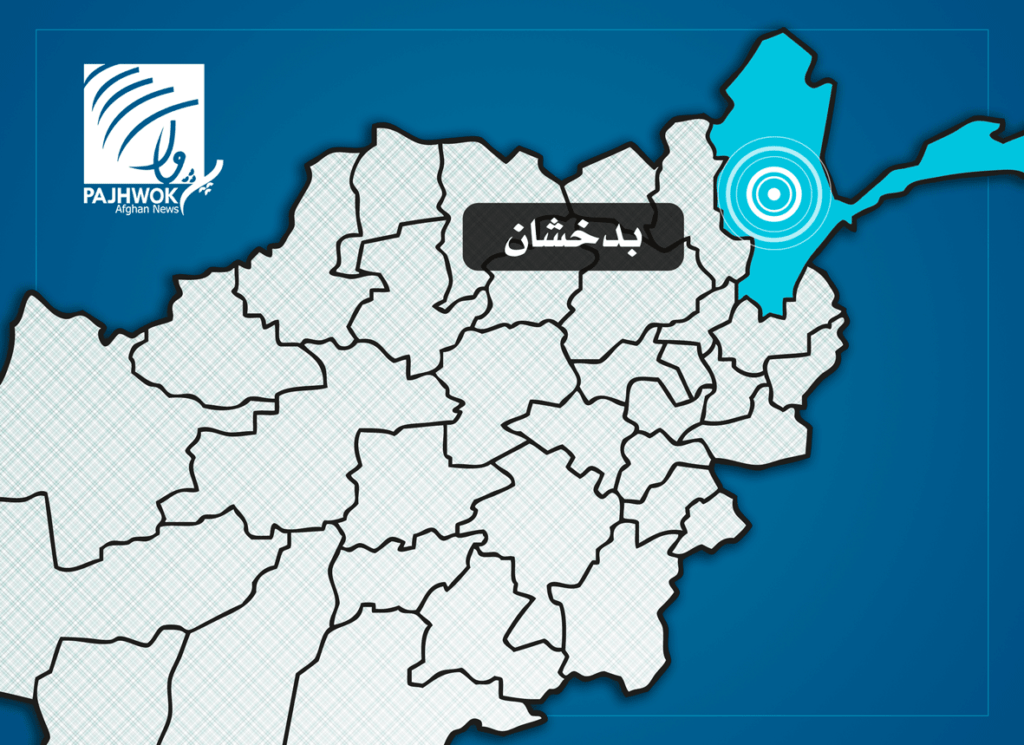FAIZABAD (Pajhwok): Pajhwok Afghan News findings show 104 children and lactating mothers have died of severe malnutrition in the past two years in northeastern Badakhshan province.
Embezzlement in the RUTF, ready-to-use therapeutic food to counter malnutrition, has been a big cause of undernourishment.
Millions of dollars are spent every year in Afghanistan on combating malnutrition. However, this food (RUTF) is sold by impoverished families and by the officials concerned at times.
An RUTF packet sells for 15 to 20 afghanis in the market, but deserving children and mothers can rarely benefit from it.
Dr. Ahmad Amin, UNICEF nutrition officer for the northeastern zone, said 1.1 million children in Afghanistan were malnourished and that parents needed to take care of them from pregnancy until they turned two.
He stressed parents must take care of their children’s health during the period to prevent malnutrition, because it caused mental and physical weaknesses, lack of immunity and even death.
“RUTF is the food that prevents malnutrition in children and breastfeeding mothers, but it is sold by poor mothers after they receive it from health centres. Such mothers are unaware of the problems linked to malnutrition,” he added.
A Faizabad-based shopkeeper, who did not want to be named, confirmed: “Before the political change, wholesalers used to buy RUTF stuff in Argo district. I witnessed the sale of 30 cartons at a time.”
Such materials were rarely distributed to deserving people, he alleged. If each child suffering from malnutrition was really given 10 to 15 packets, how 30 boxes could be sold in the market, he asked.
The Ministry of Public Health, which has banned RUTF sales in the market, warns violators will be dealt with severely.
Zaiba, a 26-year-old woman from Jurm district, said: “My child could not consume my milk due to problems. Because of poverty, my child may be suffering from malnutrition, I approached the health centre several times but it did not give me RUTF food.”
She acknowledged such food, like other items, was often sold in the market. However, she could not afford to buy it in for 15 to 20 afghanis a packet.
Given her resourcelessness, the woman said, she was trying to protect her child from malnutrition, in alternative ways possible.
Maulvi Tajuddin, a resident of the Hazrat Sayed village of Yamgan district, said in most parts of Badakhshan, especially in Yamgan, RUTF and other health services were not delivered on merit.
He added: “If you don’t have the right connections, you would not receive the necessary attention. Twenty days ago, although my child was suffering from malnutrition,”
The man recalled: “I was able to claim my rights from the health clinic in Hazrat Seyed village, but the officials’ behavior in most cases is unacceptable to our poor society.”
Health officials said $1.2 million was spent annually by international organisations such as the WPF, UNICEF and AKHSA on the fight against malnutrition in Badakhshan.
However, the number of deaths from acute and mild malnutrition in the province remains high
Saif-ur-Rehman Ibrahimkhel, head of the AKHSA (Aga Khan Health Services office, which has a health service delivery contract in Badakhshan, said an average 45,009 children and 19,828 breastfeeding women in the province suffered from malnutrition every year. At least 93 percent of them receive treatment.
He added most of people in Kohistan, Raghistan, Kran and Manjan, Shahr-e Buzarg and Wakhan districts suffered from malnutrition.
“Malnutrition is one of the deadliest diseases that kills many every year in Badakhshan and other provinces of the country, Statistics from various sources show more than 95 percent of the population is economically poor,” he said.
During the solar years 1399 and 1400, 104 children and breastfeeding mothers lost their lives due to severe and moderate malnutrition in Badakhshan. Three of them were pregnant and breastfeeding women and the rest children.
The officer said that AKHSA services in Badakhshan were provided by 115 health centres and 484 health posts in 28 districts.
Ibrahimkhel said a team of representatives from the Department of Public Health, municipality and security agencies monitored the markets of Badakhshan once a month. and if they receive the specific food, they would deal seriously and legally with its vendors.
He added that the sale and purchase of these substances by health workers and nutrition consultants was strictly prohibited, and if an employee did so, the contract would be terminated and they would be reported to the judiciary.
He called on the people to inform the authorities if they see the sale or purchase of these substances in the market or elsewhere, because it was an unforgivable injustice to the sick.
sa/mud







GET IN TOUCH
NEWSLETTER
SUGGEST A STORY
PAJHWOK MOBILE APP